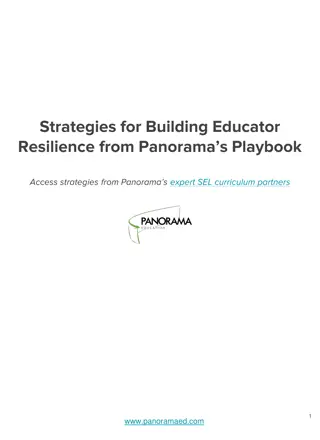
Institutional Conditions for Sustainable Degree Apprenticeships
Explore how degree apprenticeships challenge traditional notions of higher education and work, aiming to transform the relationship between Higher Education Providers and employers. Discover key findings and recommendations for the sustainable implementation of degree apprenticeships.
Download Presentation

Please find below an Image/Link to download the presentation.
The content on the website is provided AS IS for your information and personal use only. It may not be sold, licensed, or shared on other websites without obtaining consent from the author. If you encounter any issues during the download, it is possible that the publisher has removed the file from their server.
You are allowed to download the files provided on this website for personal or commercial use, subject to the condition that they are used lawfully. All files are the property of their respective owners.
The content on the website is provided AS IS for your information and personal use only. It may not be sold, licensed, or shared on other websites without obtaining consent from the author.
E N D
Presentation Transcript
Institutional conditions for sustainable degree apprenticeships Context Degree apprenticeships creatively disrupt our understanding of the relationship between higher education and work Degree apprenticeships have the potential to transform our cultural understanding of the role of Higher Education Providers and employers, placing learning at the center of our working lives, aligning the learning worlds of work and higher education. Assumptions about the presumed differences between academic and professional standards, knowledge, skills and behaviours, on-and off-the-job learning, are all challenged by the introduction of degree apprenticeships. Operating as an an apprenticeship provider has comprehensive and significant strategic and operational impacts on all aspects of higher education
Institutional conditions for sustainable degree apprenticeships Project aims To support the sustainability of the provision of degree apprenticeships and explore changes needed in the systemic structure of Higher Education Providers To advocate a whole institutional approach to work-integrated and practice-based learning to facilitate a reconstituted notion of higher education. To help Higher Education Providers and employers to be able to develop and deliver degree apprenticeships that enhance productivity and social mobility.
Project outcomes Report Literature review Semi-structure interviews employers, providers, apprentices in three key sectors: Nursing, Engineering, Digital Survey employers, providers, apprentices Findings and recommendations Dissemination events Online Centre for Degree Apprenticeships Evaluation
Some early findings The sustainable implementation of degree apprenticeships (DAs) requires: Strong institutional leadership is essential including clarity that DAs are core business That DAs are developed from the ground up as apprenticeship programmes Better, more effective, sustained and systematic collaboration with employers A specific focus on systems and practices that enable recruitment and progression An effective learning culture in the workplace The workplace as the source of learning not just a site for its application Effective and comprehensive integration of on and off-the-job learning Authentic assessment that reflects working practices and work-integrated pedagogies Quality assurance approaches that maintain professional and academic standards but also accommodate the contribution of multiple stakeholders
Survey https://www.surveymonkey.co.uk/r/6NHQGDX Creating Institutional Conditions for Sustainable Degree Apprenticeships Introduction Middlesex University, the University of Staffordshire, Sheffield Hallam University and the University Vocational Awards Council are conducting research that will help higher education providers and employers to be able to develop and deliver degree apprenticeships that enhance productivity and social mobility. What is your role and involvement in apprenticeships?
Centre for Degree Apprenticeships Centre for Degree Apprenticeships Home Discussion Webinars Research Support Resources Contact us Creating Institutional Conditions for Sustainable Degree Apprenticeships Welcome The Centre for Degree Apprenticeships (CAD) is a network that is designed to help higher education providers develop and deliver high quality degree apprenticeships that enhance productivity and social mobility. CAD will provide a forum for sharing best practice, research and innovation in work-integrated and practice-based learning to explore and promote the institutional sustainability of the provision of degree apprenticeships.
















